In 2013, Aid to Artisans (ATA) re-launched its successful Small Grants Program in partnership with canvas home™, a retailer of artisan furniture, ceramics, and textiles. In the summer of 2014, we continued the program with 8 artisan groups/craft producers from Haiti, Kenya, Zimbabwe, Peru, the Kyrgyz Republic and Guatemala.
The canvas home™ Small Grants Program provides artisans with direct and immediate financial assistance that can lay the groundwork for sustainable incomes for artisans. These grants are designed to allow artisan groups to acquire materials, tools, equipment, training, marketing services in order to expand employment and generate income.
Using the funds from the grant, 2013 canvas home™ Small Grants Program awardee Altyn Kol from Kyrgyzstan was able to support approximately 40 local artisans by providing training, sales, and marketing services, purchased display shelves and tables for their very first handicraft museum.
“By opening a handicraft museum, we can keep our old products and preserve the history of the embroidery, symbols, and designs. It would give us new ideas on how to make new items and offer our clients old designs to use on modern products. The museum will become a way of advertising Altyn Kol,” Zhakypova Burul says, director of Altyn Kol.
From Egypt, Alhaya Erada for Sustainable Development (ASED), established in 2009 to implement the USAID/Aid to Artisans funded project “Handmade in Egypt,” used the grant to successfully host a one-day sales event, enabling at least 45 artisans to participate, resulting in total sales of 12,000 EGP (about $1,724 USD).
“The grant also helped us re-connect with our artisans that we served before, uplift the burden of some of the stocks off producers, promote Alhaya Erada’s activities in front of other donors, and increase sales to the producers,” says Shereen Shirazy, director of Alhaya Erada.
This September, ATA is proud to announce the canvas home™ Small Grants Program winners:
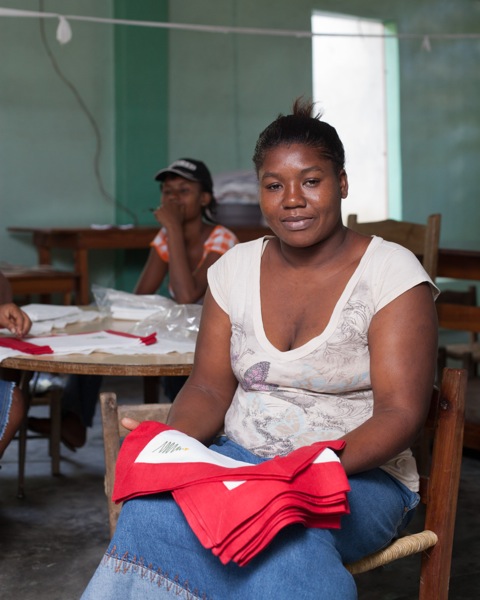
A woman involved with Haiti Project, Inc.
Haiti Projects, Inc.
Since 1994, Haiti Projects, Inc. (HP) has been empowering women in rural Haiti to “lift themselves out of poverty, become self-sufficient, and build community.” HP began as a family planning clinic, offering critical women’s health services to the region and now serves more than 30 villages through their mobile clinics.
Through their Artisanat Cooperative, Haiti Projects provides economic opportunity to the Fond des Blancs region—a rural area in dire need of jobs. Currently, Haiti Projects employs more than 100 women who use their skills to produce heirloom-quality handmade nightgowns, house linens, and holiday and gift items using 100% cotton, pure linen, canvas, wool, and leather. The exquisite handiwork of these women includes an embroidery technique called passé plat that is uniquely tied to the culture and history of Haiti and has been passed down from mother to daughter for generations. The funds from this grant will be used for trainer costs for tunic design, embroidery techniques, production and follow-up as well as linen material, a sewing machine and embroidery thread.
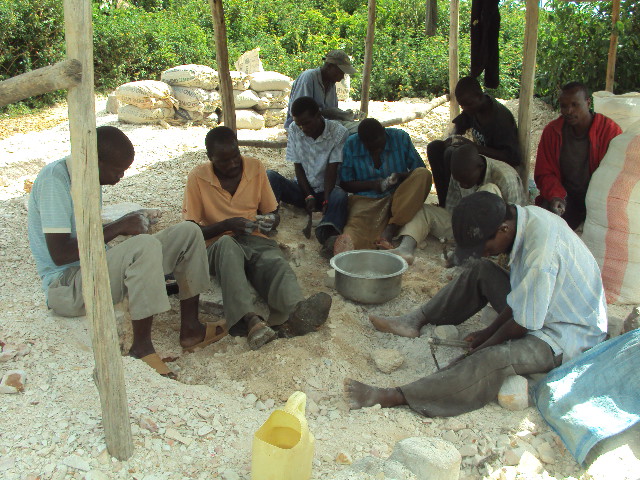
Artisan carvers at work.
Hands of Hope Artisan Carvers Self-Help Group (Kenya)
Hands of Hope Artisans Carvers Self-Help Group was established in response to the tremendous number of vulnerable artisans, particularly women and youth. Located in the rural town of Tabaka, their goals are to improve lives as well as raising community living standards, healthcare opportunities and to promote education through fostering the talents of these vulnerable groups in the production and marketing of soapstone carvings, jewelry and post cards. Hands of Hope Artisans Project currently runs production and marketing of the products as its main activity. Since its inception, the project has been able to improve living conditions of its members directly and indirectly through the sales of the finished products both local and internationally. The funds from this grant will be used for embossed paper, brushes, glues, carving knives, sand paper, dyes, polish, chisels, sharpening files, axes, pairs of scissors, hand saws, iron sheets and a digital camera.
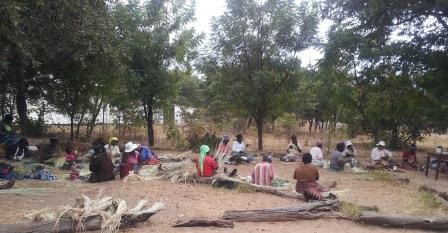
The women of the Lupane Women’s Centre.
The Lupane Women’s Centre (Zimbabwe)
The Lupane Women’s Centre is a community organization run by the women of Lupane for the women of Lupane. Its initial development began with 14 baskets weavers and the help of a US Peace Corps volunteer Claire Raick, who worked with the organization for 10 years. Since 2005, the organization has had exponential growth from 14 crafts artisans to 351 artisans. The key goals of the Lupane Women’s Center are to empower female artisans through training and market linkages. This individualized training has helped improve the quality of their work, to meet production deadlines and understand costing procedures. The funds from this grant will be used for payment of the organization’s costs to participate in an international exhibition including transport, payment for the exhibition stand, accommodations, food and border clearances.

Members of PeaceQuilts in Haiti.
PeaceQuilts, Inc. (Haiti)
PeaceQuilts, Inc. is a 501(c)(3) organization dedicated to relieving poverty by establishing independent, self-managed and self-sustaining sewing cooperatives in Haiti. The sewing cooperatives provide Haitian women an opportunity to engage in meaningful work, producing products that reflect Haitian art and culture, while earning a living wage. PeaceQuilts currently assists about 90 women, organized into six independent cooperatives. The funds from this grant will be used for sewing machines and chairs for sewing machines.
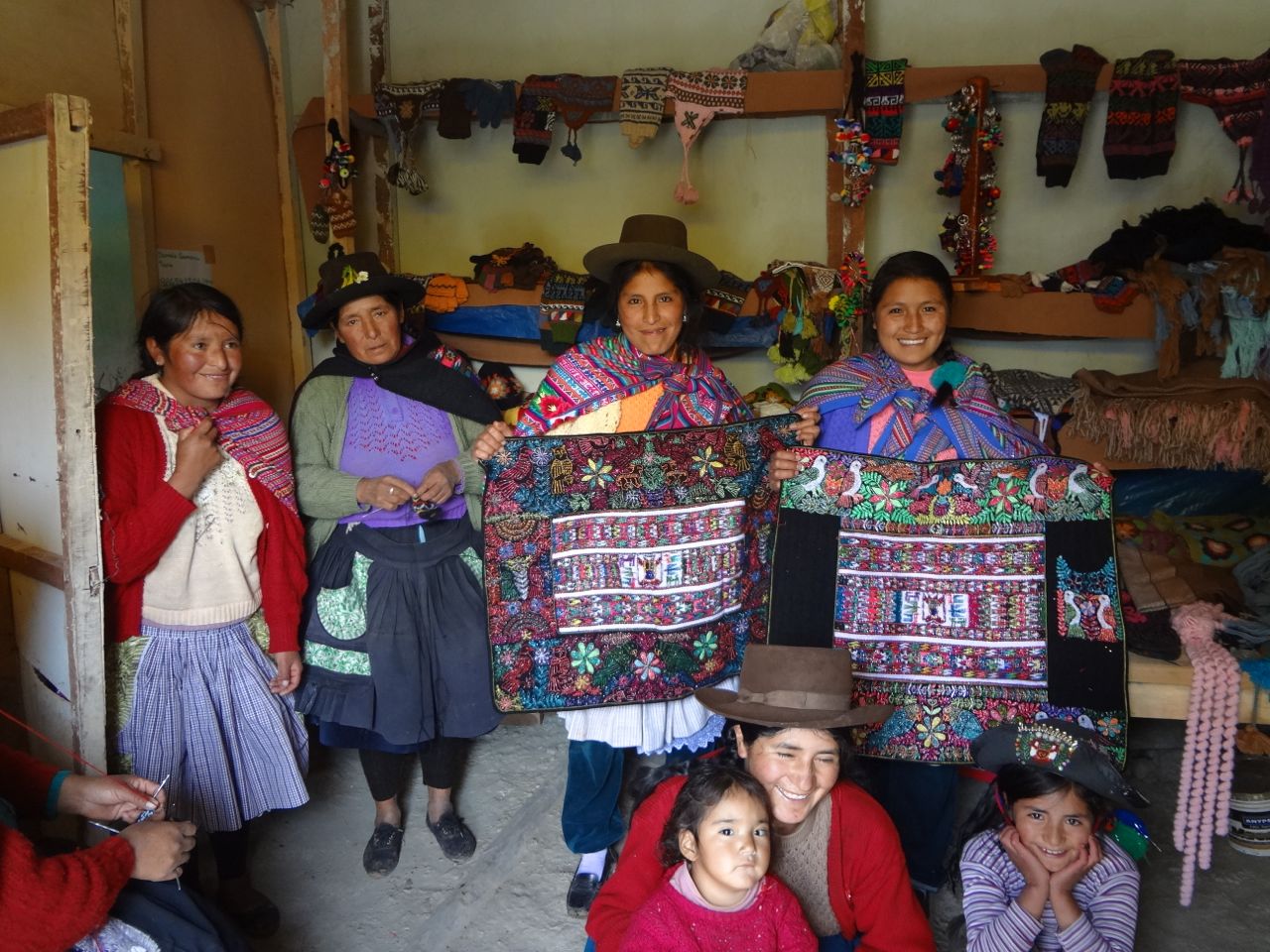
Artisans from Bridge of Hope, showcasing some of their work.
Red Uniendo Manos Peru – Bridge of Hope
Tupaq Yupanqui is a group of women knitters and male weavers and embroiderers that live in a small Andean village outside of Yauli, in the Huancavelica province. The group’s members grew up learning their traditional crafts, but could never receive a fair wage for their work because of a saturated local market. To continue their artisan work and way of life, Tupaq Yupanqui began working with Bridge of Hope in 2006, exporting their work that incorporated traditional Incan patterns into a design that has been adapted for the foreign market. Over the years, the group has grown from 5 to 12 members and have shifted leadership opportunities to the young women within the group. The funds from this grant will be used to receive training by a knitting instructor, Alpaca yarn, knitting needles, measuring tape, scissors and a yarn ball winder.

The women of Sasa Designs by the Deaf, perfecting their craft.
Sasa Designs by the Deaf (Kenya)
In 2011, D.O.O.R. International launched Sasa Designs by the Deaf to provide employment and fair wages to Deaf artisans in the country. The project was started in response to the ideas of women about learning to make and sell jewelry. Initially training seven women, the project has grown steadily into an organization that employs 13 Deaf women and one hearing manager. As a result of their growth, Sasa Designs has been able to participate in both the San Francisco and New York International Gift Shows and currently partners with approximately 60 wholesale vendors in the US and Kenya. The funds from this grant will be used for a large work table and ergonomic work chairs.

Examples of work from Kyrgyz artisans.
Union of Artistic Crafts (Kyrgyz Republic)
Founded in 2011, the Union of Artistic Crafts was created to connect Kyrgyz artisans to larger markets both at home and abroad, in countries like Germany and the US. Union members consist of individual masters and craft groups who produce felt souvenirs, accessories, home décor, ethnic clothing, ceramics, jewelry, and interior and exterior décor. The funds from this grant will be used for a HP PRO 200 M276.
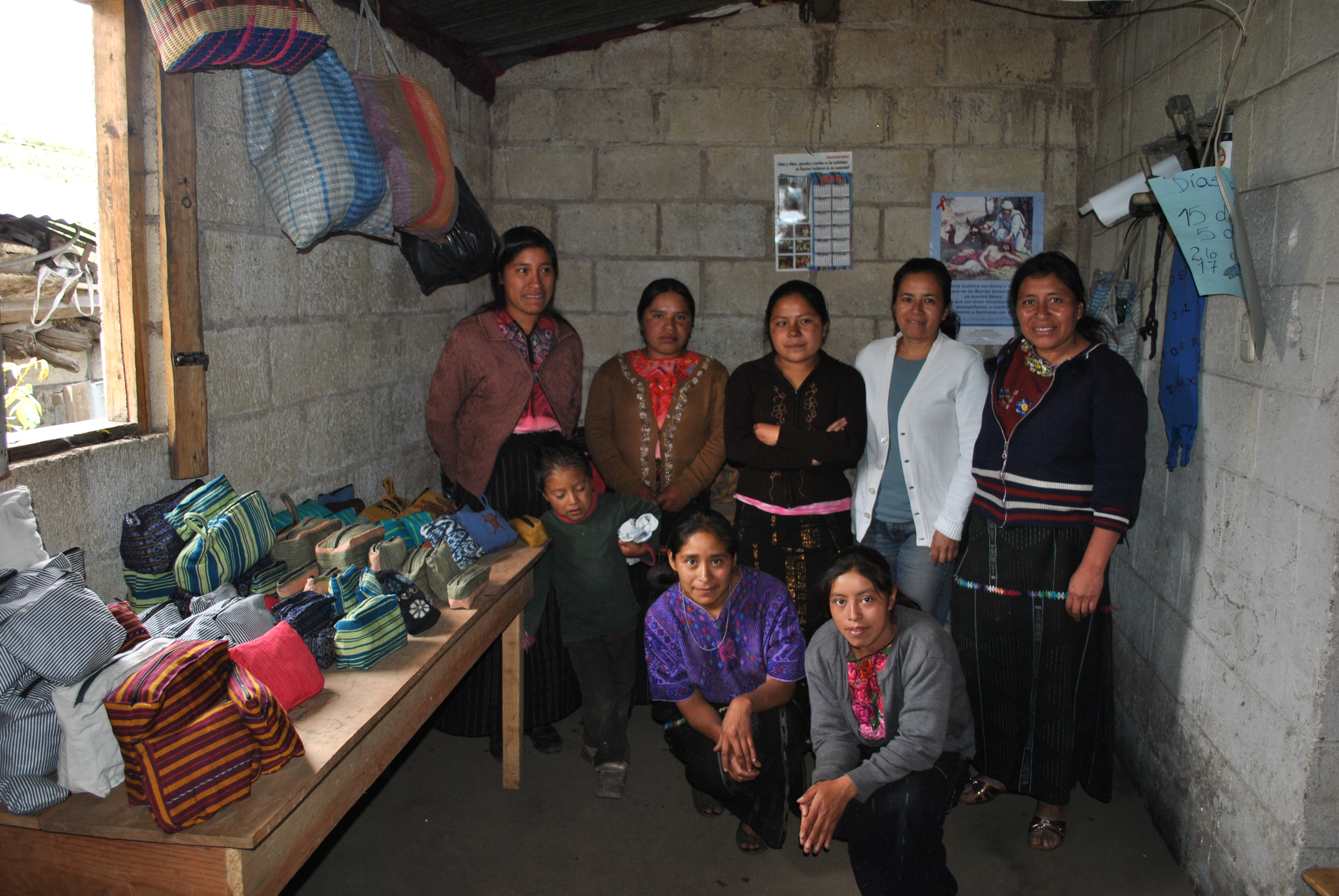
A group of women who work with Y’abal Handicrafts.
Y’abal Handicrafts (Guatemala)
Y’abal Handicrafts was founded as a Guatemalan NGO in an effort to provide emergency disaster relief to two coastal indigenous communities, Pacutama and Chuicutama, which were destroyed during Hurricane Stan in 2005. Y’abal worked for the next couple years with the community to provide food, clothing blankets, medicines, permanent houses, a medical center, and began a micro-credit program, however, it soon became apparent that the key for the long term sustainability of these communities depended on their economic self-sufficiency. Y’abal began offering workshops with the women on business administration, price calculation, quality control, democratic decision-making, product design, self-esteem and team work. In 2010, Y’abal Handicrafts was officially registered as a Guatemalan business and a store was opened in Quetzaltenango. Y’abal Handicraft’s goal is to increase sales and production capacity in order to be a completely self-sufficient fair trade business; incorporating community members in all aspects of the business, to eventually assure the long-term sustainability of the communities they work with. Y’abal also seeks to preserve the centuries-old Mayan artisan tradition of back-strap weaving by working exclusively within this technique. The funds from this grant will be used for an industrial sewing machine, industrial iron, sewing materials and sewing class instruction for 8 people.






